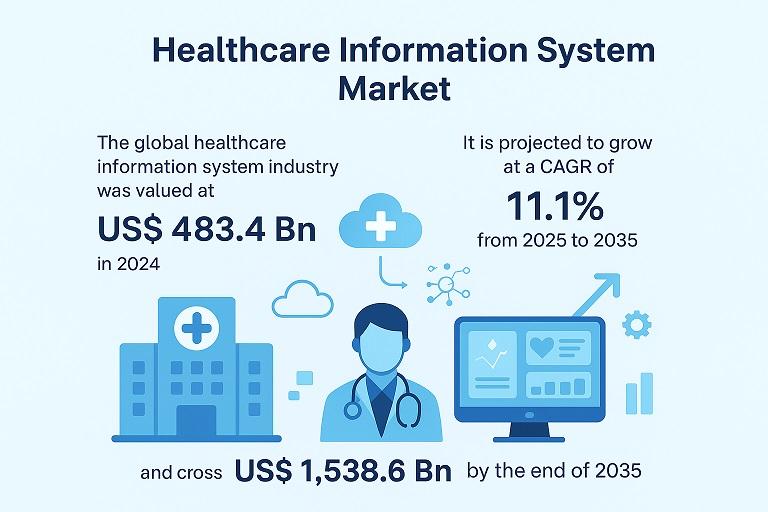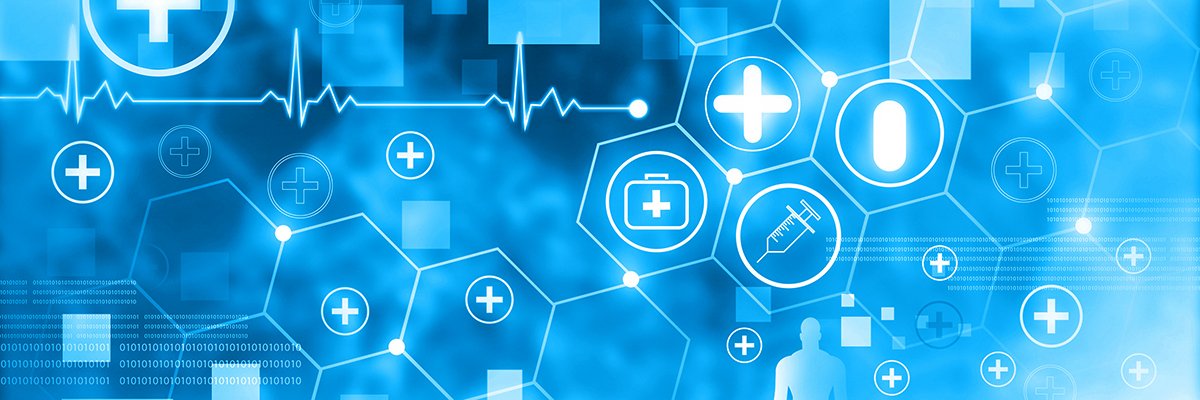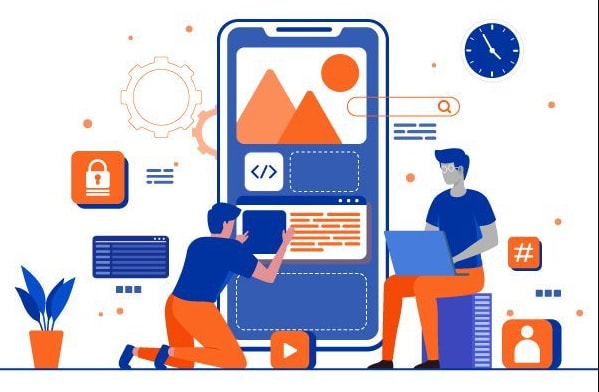10 Career Options with a Health Informatics Degree

What is Health Informatics?
Health informatics is where healthcare meets technology. It’s the science of using data to deliver better care, streamline systems, and support life-saving decisions. The professionals who work in this field are problem solvers and innovators, who play a crucial role in the quality of care patients receive from hospitals, doctors’ offices, and even insurance companies.
At its core, health informatics focuses on how we collect, digitize, store, and share health information. From electronic patient records to secure hospital networks, this field makes sure the right data gets to the right people at the right time, whether that’s a doctor at the bedside or a researcher tracking public health trends.
It’s a fast-moving, interdisciplinary field that blends information technology, communication, and clinical knowledge. Health informatics professionals work closely with physicians, nurses, specialists, and IT teams to make care more connected.
General responsibilities for health informatics professionals include:
- Managing health information data and ensuring its quality, accuracy, accessibility, and security
- Analyzing data to improve decision-making, outcomes, and delivery while also reducing costs
- Developing, implementing, or improving electronic health records systems
- Training employees in different software and implementing processes that streamline reporting
- Ensuring organizations follow regulations at the federal and state levels
Why Pursue a Career in Health Informatics?
As hospitals, clinics, and public health systems rely more heavily on digital tools, they need professionals who can make technology work for patients and the larger healthcare system.
They make sure electronic health records are accessible, accurate, and secure. They help doctors and nurses deliver faster, smarter care. They analyze trends, reduce costs, and drive decisions that improve patient outcomes across entire populations.
And according to the U.S. Department of Labor Statistics, the field shows incredible promise.
Employment for computer and information systems managers is projected to grow 15% from 2024 to 2034, much faster than the national average of 4% across occupations. Overall employment in healthcare occupations is also expected to grow rapidly, driven by aging populations, expanding data use, and an increased focus on value-based care.
In other words, the industry is scaling quickly, with plenty of opportunities for those who want to pursue it. Whether you’d like to work in a hospital, a public health agency, a private tech company, or a research institution, health informatics gives you the tools to lead meaningful change.
Do you need experience in healthcare or information technology to start?
Health informatics is a career path that can be achieved with many different starting points.
Some professionals begin with a clinical background, such as nursing, pharmacy, or allied health, and build technical skills along the way. Others come from the tech world, then add medical knowledge to understand how their work impacts patient care.
What matters most is the ability to connect the dots between how health systems function, how technology supports them, and how to deliver smart, scalable solutions that improve outcomes.
Whether you’re switching careers or upskilling, a degree in health informatics equips you with the tools you need to step into a high-impact role.
If you’re wondering where your current skills stack up, here are the essentials of a trained health informaticist.
- Knowledge of health data systems
Understand how electronic health records (EHRs), patient portals, and clinical databases work behind the scenes. This foundation lets you navigate complex systems and ensures patient data flows smoothly and securely. - Programming know-how
Get comfortable with languages like SQL, Python, or R. These tools help you extract, manage, and analyze data efficiently, turning raw information into actionable insights. - Data analytics skills
Learn to interpret trends and visualize insights that support smart, evidence-based decisions. Data-driven thinking is the key to improving patient outcomes and streamlining care delivery. - Independent problem-solving
Health informatics isn’t always straightforward. Be ready to think on your feet, troubleshoot challenges, and find creative solutions in fast-paced, high-stakes environments. - Communication and collaboration
Work across teams, departments, and specialties to keep care connected. Healthcare is a team sport that involves collaboration across departments to keep everyone aligned and focused on delivering better care.
Top Careers in Health Informatics
Specific qualifications and salaries vary by location and employer. The information below is compiled from multiple sources, including Glassdoor and the U.S. Bureau of Labor Statistics and is for the New York Metro area.
Clinical Informatics Analyst
Role: Clinical informatics analysts collect and interpret data from clinical systems to improve patient outcomes, optimize workflows, and support decision-making across departments.
Qualifications: Most positions require a bachelor’s degree in health informatics, information systems, or a related field. Many analysts also have experience in clinical settings or IT, plus strong skills in data analysis, EHR systems, and healthcare regulations.
Median Annual Salary: $141,000
Work Environment(s): Hospitals, health systems, research institutions, insurance companies, and public health agencies
Compliance Officer
Role: Compliance officers make sure healthcare organizations follow the rules. They oversee policies, monitor practices, and ensure everything from patient privacy to billing procedures aligns with federal and state regulations.
Qualifications: A bachelor’s degree in health administration, business, or a related field is required in most instances, though many professionals hold advanced degrees or certifications such as Certified in Healthcare Compliance (CHC). Strong knowledge of HIPAA and other regulatory standards is important.
Median Annual Salary: $148,000
Work Environment(s): Hospitals, clinics, insurance companies, government agencies, and large health systems
Data Scientist
Role: Data scientists turn complex data into actionable insights that improve operations across the board. In healthcare, they build models, run predictive analytics, and help organizations make smarter, faster decisions, whether it’s improving patient outcomes or optimizing operations.
Qualifications: A bachelor’s degree in computer science, statistics, math, or a related field is the baseline, however, most roles prefer a master’s or Ph.D. Proficiency in Python, R, SQL, and machine learning is essential, plus strong skills in data visualization and communication.
Median Annual Salary: $162,000
Work Environment(s): Hospitals, research institutions, public health agencies, biotech firms, insurance companies, and health tech startups
Data Analyst
Role: Data analysts gather, clean, and interpret data to help healthcare organizations solve problems and make informed decisions. They create reports, identify trends, and support every aspect of operations.
Qualifications: Most roles require a bachelor’s degree in data analytics, health informatics, statistics, or a related field. Strong skills in Excel, SQL, and data visualization tools like Tableau or Power BI are a must.
Median Annual Salary: $96,000
Work Environment(s): Hospitals, clinics, insurance companies, public health departments, and health tech firms
Director of Clinical Informatics
Role: The director of clinical informatics leads the strategy, development, and optimization of clinical information systems. They align technology with patient care, ensuring tools like EHRs support providers and meet organizational goals.
Qualifications: Typically requires a clinical degree, such as RN, NP, or MD, plus advanced education in health informatics, health administration, or IT. Strong leadership experience and deep knowledge of clinical workflows, data systems, and health regulations are essential.
Median Annual Salary: $174,000
Work Environment(s): Hospitals, large health systems, academic medical centers, and government agencies
Health Data/Information Technology Project Manager
Role: Health data and IT project managers lead projects that involve the collection, management, and use of health data. They coordinate teams, timelines, and tech tools to ensure projects stay on track.
Qualifications: The position often requires a bachelor’s degree in health informatics, IT, health administration, or a related field. Project management certifications (like PMP) and experience with tools like Jira, Trello, or Microsoft Project are highly valued.
Median Annual Salary: $136,000
Work Environment(s): Hospitals, health systems, insurance companies, government agencies, and health tech companies
Health Information System Application Designer
Role: These professionals design and build user-friendly and efficient software tools that power modern healthcare, including EHR platforms, patient portals, and clinical decision support systems.
Qualifications: A minimum of a bachelor’s degree in computer science, software engineering, or health informatics is required. Experience in user interface and user experience, front-end and back-end development, and healthcare data standards is necessary.
Median Annual Salary: $97,000
Work Environment(s): Health tech companies, hospitals, research institutions, insurance providers, and government agencies
Nursing Informatics Manager
Role: This type of manager leads the planning and implementation of technology that supports nursing practice. They manage teams, constantly improve clinical workflows, and ensure that EHRs and other systems align with the needs of nurses and patients alike.
Qualifications: Requires an active RN license and a BSN; many employers prefer a master’s in nursing informatics, health informatics, or health administration. Strong clinical experience and knowledge of health IT systems are key.
Median Annual Salary: $159,000
Work Environment(s): Hospitals, large health systems, academic medical centers, and public health organizations
Quantitative Analyst
Role: Quantitative analysts use math, statistics, and data modeling to solve complex healthcare problems. They build predictive models and help organizations make data-driven decisions that improve outcomes before issues actually arise.
Qualifications: Most roles require a bachelor’s or master’s degree in mathematics, statistics, data science, economics, or a related field. Strong skills in programming and advanced analytics are essential.
Median Annual Salary: $206,000
Work Environment(s): Health systems, insurance companies, government agencies, research institutions, and health tech firms
Clinical Data Analyst
Role: Clinical data analysts use healthcare data to identify trends, improve patient outcomes, and support clinical decisions. They play a key role in ensuring data is accurate, relevant, and actionable across departments.
Qualifications: Most roles require a bachelor’s degree in health informatics, statistics, or a healthcare-related field. Experience with EHR systems, data mining, and clinical workflows is highly valued.
Median Annual Salary: $101,000
Work Environment(s): Hospitals, clinics, research organizations, insurance companies, and health systems
Population Health Data Analyst
Role: Population data analysts focus on large-scale health trends, helping healthcare systems and public health agencies track outcomes, manage chronic diseases, and address disparities in care.
Qualifications: A bachelor’s degree in public health, statistics, or health informatics is typically required; some roles may prefer a master’s. Strong data analysis skills, knowledge of epidemiology, and experience with public health datasets are key.
Median Annual Salary: $104,000
Work Environment(s): Public health departments, research institutions, government agencies, and large healthcare systems
Senior Data Lead
Role: Senior data leads oversee data strategy, architecture, and analytics initiatives across organizations. They lead teams of analysts and data scientists to ensure insights drive business and clinical improvements.
Qualifications: Requires a bachelor’s or master’s degree in data science, informatics, or a related field. Extensive experience in data governance, modeling, and team leadership is critical.
Median Annual Salary: $173,000
Work Environment(s): Large hospitals, health tech companies, insurance providers, and consulting firms
Senior Data Lead, Solution Design
Role: This role focuses on designing high-level data solutions that meet clinical and operational needs. Senior data leads in solution design work closely with IT, clinical staff, and business stakeholders to translate complex requirements into scalable systems.
Qualifications: Typically requires a bachelor’s or master’s in computer science, health informatics, or a related field, along with experience in systems architecture, data strategy, and cross-functional collaboration.
Median Annual Salary: $262,000
Work Environment(s): Health systems, enterprise healthcare providers, EHR vendors, and health tech consultancies
IT Manager, Healthcare
Role: IT managers in healthcare oversee the implementation, security, and maintenance of information systems. They lead IT teams, manage system upgrades, and ensure technology supports clinical and operational goals.
Qualifications: A bachelor’s degree in IT, health informatics, or a related field is required; many have certifications such as CompTIA, Cisco, or PMP. Strong leadership skills and healthcare IT experience are essential.
Median Annual Salary: $137,000
Work Environment(s): Hospitals, clinics, insurance companies, and health tech organizations
Chief Medical Information Officer (CMIO)
Role: CMIOs connect clinical care with health technology. They lead the design and use of systems like electronic health records, making sure tech supports better outcomes, faster workflows, and smarter decisions across the organization.
Qualifications: Most CMIOs are licensed physicians (M.D. or D.O.) with board certification and specialized training in health informatics, IT, or health administration. Leadership experience and deep knowledge of EHRs are essential.
Median Annual Salary: $358,000
Work Environment(s): Hospitals, health systems, academic medical centers, and government or consulting firms
Health Informatics Career Specializations
Health informatics is a dynamic field with room to specialize, grow, and lead, whether you’re interested in data, systems, strategy, or patient care.
Popular specializations within health informatics include:
- Health Data Analysis
Use numbers to drive smarter decisions and improve outcomes - Software, Health Information & Clinical Decision Support Systems
Design and manage the tools providers rely on every day - Data Privacy, Governance & Security
Protect sensitive information and ensure compliance in a high-stakes environment - Leadership, Strategy & Transformation
Guide organizations through digital change and health tech innovation - Applied Clinical Informatics
Bridge the gap between clinical care and data-driven tools - Nursing Informatics
Help nurses work smarter and safer with the right technology - Biomedical Informatics
Analyze biological data to support research, diagnosis, and treatment - Public Health Informatics
Track trends, prevent disease, and improve population health using data
Health informatics professionals are needed everywhere care happens. Common settings include:
- Doctor’s offices
- Specialist practices
- Pharmacies
- Hospitals
- Public health agencies
Whether you’re interested in clinical workflows, backend systems, or big-picture strategy, there’s a specialization that fits your goals.
FAQs
What do health informatics professionals do?
Put simply, health informatics professionals make healthcare smarter. They achieve that by collecting, managing, and analyzing data to improve care delivery. Whether they’re building digital tools, optimizing EHRs, or tracking health trends, they help providers and patients get more from technology.
What is a job example for health informatics?
There are many different career paths that fall under health informatics. For example, a clinical informatics analyst works with healthcare data to identify patterns, improve clinical workflows, and support care teams with real-time insights. Other roles include health data scientist, nursing informatics manager, and compliance officer.
Is healthcare Informatics a good career?
Yes, health informatics is a strong career choice and it’s only growing. This area of healthcare sits at the intersection of health care and tech, making it one of the most in-demand, future-forward fields. It offers competitive pay, career flexibility, and the chance to make a real impact on patient care and system performance.
What is the highest salary in health informatics?
Leadership roles like Chief Medical Information Officer (CMIO) top the pay scale in health informatics, with median annual salaries around $313,000. Other high-paying roles include director of clinical informatics, health data scientist, and nursing informatics director.
Ready to turn your curiosity into a career? The field of health informatics is growing fast. With the Health Informatics, MS – Online from Pace, you’ll build the skills to lead, specialize, and drive change in health care. Want to learn more? Request information and take the first step.
link








